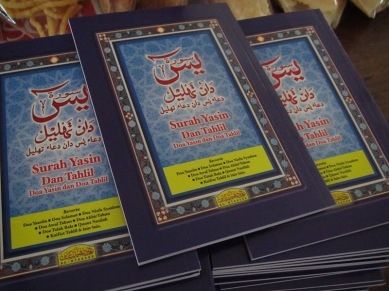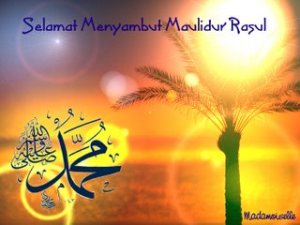Islamic culture or culture of Islam.
Posted by musafir asing in wartawan muda ToF on Thursday, 12 January 2012
Bismillahirrahmanirrahim.
Last a couples of weeks, my twin jaulah ( Ina) and I were assigned to write an account on one of the talks in Twins of Faith conference which was held in Putrajaya. It is called “Wartawan Muda assignment”. Our topic is ” Islamic culture or Culture of Islam” by Dr Abu Ameenah Bilal Philips.
Let’s start off our journey with an inspiring biodata of Dr Bilal Philips.
Dr Abu Ameenah Bilal Philips is a Jamaican Canadian Islamic Scholar who converted to Islam in the early seventies after journeying politically and intellectually from Christianity to Communism. Shortly after his reversion to Islam, he embarked on a spiritual academic journey to the other side of the world seeking Islamic knowledge. This journey took him to Saudi Arabia where he completed a BA in Islamic studies in Madeenah, and an MA in Islamic Theology in Riyadh, then to the University of Wales, UK, where he completed a PhD in Islamic Theology in the early nineties.
Dr Bilal subsequently founded and headed, in 2008, the English medium Islamic studies department of Knowledge International University (www.kiu.org), who’s Chancellor is Shaikh Dr. ‘Abdur-Rahman ibn ‘Abdil-Azeez Al Sudais and who’s President of the board of trustees is Shaikh ‘Abdul-Azeez ibn ‘Abdullah Al Shaikh, Mufti of Saudi Arabia. More recently, in 2009, Dr Bilal Philips founded and headed the College of Da’wah and Islamic Culture (English Section), Omdurman Islamic University, Sudan, and established and directed Preston International College (www.prestonchennai.ac.in) in Chennai, India. In March of this year (2010) Dr Abu Ameenah Bilal Philips launched, for the first time in history, an accredited tuition-free BA in Islamic Studies degree course at the Islamic Online University (bais.islamiconlineuniversity.com).
…………………………………………………………………………………..
Have you ever heard about “bride burning”? It is a tragic phenomenon which happens widely in several countries especially is India, Pakistan, Bangladesh and Sri Lanka. Have a look at this video.
It was reported that three-hundred Pakistani women are burned to death each year by their husband’s families.
“According to the association’s findings, bride burning every year accounts for the violent death of at least 300 women, perpetrated most often by the victims’ husbands or husbands’ families,” said the association’s Shamoon Hashmi.
Bride burning is described as a form of domestic violence. It happens when “the husband and/or in-laws who determine that the dowry (a gift given from the daughter’s parents to the husband) found it is inadequate and therefore attempt to murder the new bride to make the husband available to remarry or to punish the bride and her family. In a few countries such as India and Pakistan ,dowry size is a reflection of wealth.
Ironically, this happens in large Muslim-populated countries. Even though this practice is originally a Hindu culture, but a lot muslims in those countries are still practising it. Subsequently, confusion arises whether Islam permits violence and on the same time, promotes peace.
In this talk, Dr Bilal Philips has enlightened the audience with “never-ended list” of cultures which are practised by muslims around the world. What make us concern is, a number of these practices are contradicted with Islamic teaching and values, for example ; dowry giving which is adapted from Hindu custom. In Hindu culture, women have no value. When a daughter marries a man, her family must pay an amount of money as a compensation to take the her “ so-called burden/bad luck” away from the family. Therefore, a lot of brides’ family request expensive dowry . If they do not satisfy with the dowry, they would abuse the daughter in law.
In contradiction to that, in Islam, dowry or “mahar” is a obligatory gift which a husband must give to his wife as an expression of desire to marry her. Hence , “mahar” is a right of a wife.
“And give to the women (whom you marry) their Mahr (obligatory bridal-money given by the husband to his wife at the time of marriage) with a good heart”
[al-Nisa’ 4:4]
Islamic culture and culture of Islam are two different things.
Islamic culture is the activities or ceremonies which are practised by the muslims . However there is no guarantee that these practices are based on Al Quran or authentic Sunnah. They might be a mixture of ancient customs and unrecognized religious values which then had been inherited from the ancestors.
On the other hand, culture of Islam is totally different.
According to Dr Bilal Philips, it is produced by people who practised Al Quran and Sunnah. They do not conflict the Islamic teaching in term of faith, cultures, life styles , morals etc. They learn and understand the fundamental teaching of Islam .They convey the principles into daily life activities without compromising the true values.
We were surprised to know that there are numbers of practices among Muslims in Malaysia which are not actually based on strong and authentic Islamic sources. This is the list:

1. Yaasin recital when someone dies. There source/hadith is unauthentic.

berdoa dalam bersanding.-sekadar gambar hiasan. no offence.
2. Bersanding/menepung tawar during wedding ceremony. The purpose of this tradition is to ask the guest’s blessing. This is Hinduism belief.

3. Circumcision is commonly done among boys at age around 11-12 years old in Malaysia. It should be done at day of 7 as the Prophet did it to his grandchildren. It causes less pain and less embarrassment.

4. Maulidurrasul celebration. The prophet, sahabat, tabie’ tabiien did not hold any celebration on the Prophet’s birthday. It was reported that Syiah group in Egypt has first started it. There is no authentic source supports this practice.
But mind you, there are certain practices are still permitted in Islam as long as they do not collide the Islamic principles and beliefs.
As a conclusion, it is important for us to acquire knowledge in order to ensure that our belief and actions are based on strong Islamic evidence and sources. We can’t simply “follow the flow” or “imitate” what the majority do without understand the “dalil” or reasons behind the actions. Once the knowledge is gained, it is then time to put it into action.
Action without knowledge is in vain.
Knowledge without action is insane.
Both without Ikhlas is lost.
note: This writing is based on the talk. We may be correct or we may be wrong in interpretating the content. If you find any errors or misinterpretation, please let me know by emailing at shazwani.othman@gmail.com.
This entry was posted on Thursday, 12 January 2012 at 19:11 and is filed under wartawan muda ToF. You can follow any responses to this entry through the RSS 2.0. You can leave a response.
- No comments yet.

